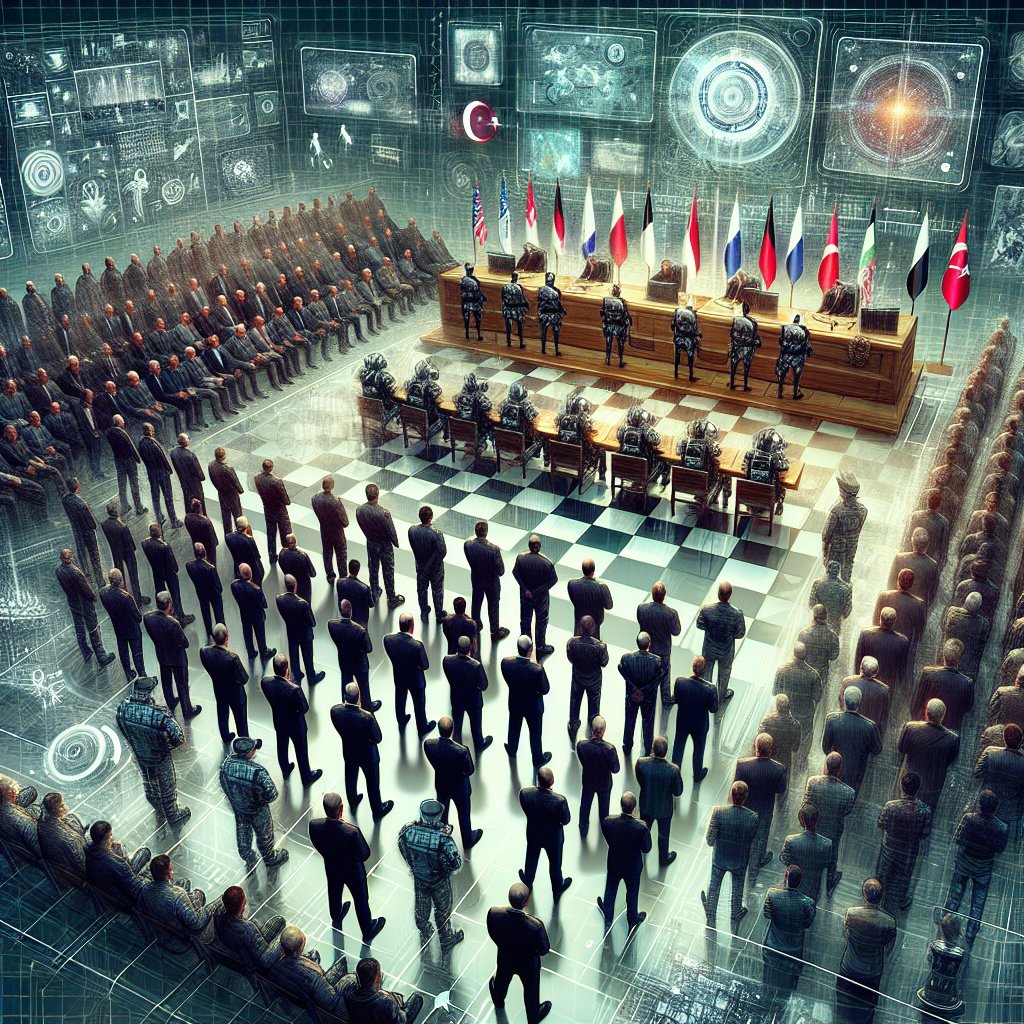Image created by AI
Monumental Prisoner Exchange Amidst Russian-Ukraine Conflict: A Tangle of Victory and Diplomatic Chess
The recent prisoner exchange between Russia, the United States, and other Western countries marks a significant chapter in the layered dynamics of international diplomacy, particularly amidst the continuing Russian invasion of Ukraine. On a cool day in Ankara, 24 individuals found themselves in the midst of the largest prisoner exchange since the days of the Cold War, an event laden with both triumph and uneasiness as the complex terms of geopolitical engagement played out.
At the heart of this exchange were individuals whose fates collided with the national interests—sometimes obscure, sometimes overt—of their countries. Russia welcomed back individuals like the Dultsev couple, covertly dealing in espionage under the guise of art dealing, cybercrime figures, and notably Vadim Krasikov, an elite veteran tied to numerous covert operations. Russian President Putin's welcome emphasized a narrative of loyalty and national service, framing the returnees as committed patriots.
Turned over to Western custody were international journalists, opposition figures, and others perceived as threats to the Kremlin's control. These included figures like Vladimir Kara-Murza, whose vocal critique of Russian policies and alleged previous poisoning attempts highlighted the dangers faced by dissidents. Their release was greeted as a victory for the individuals and their families, allowing them to resume their lives and activism outside the stern gaze of Russian authority.
Amid the relief and celebrations, there are those who view the exchange with caution and the pensive acknowledgment that this is but a temporary reprieve in a much larger and ongoing political battle; one where human lives are pawns on a chessboard of statecraft. The complex dynamic of 'hostage diplomacy' is underscored, suggesting that for Russia, the returns serve a dual function of retrieving assets while also striking fear in those who might oppose the state. It suggests a tactical exchange, where the very act of detention serves as a bargaining tool.
In the United States, the reactions are a mixture of triumph and critique, as former President Trump questions the equity of the swap. Russian opposition factions express relief yet remain acutely aware that the systemic persecution within Russia persists.
Among the skeptical is the view that Ukraine's omission from the swap signals undercurrents in the deal, potentially hinting at undisclosed aspects of the negotiation that center solely around Russian and U.S. interests.
As families and allies celebrate the safe return of loved ones, a cloud hangs over the reality that the vast majority of political prisoners remain in detention, and the mechanisms of repression continue unabated. The exchange, while a deeply human moment of reunion and freedom, offers no solution to the entrenched conflicts and stands as a stark reminder of the ongoing human cost of geopolitical strife.










